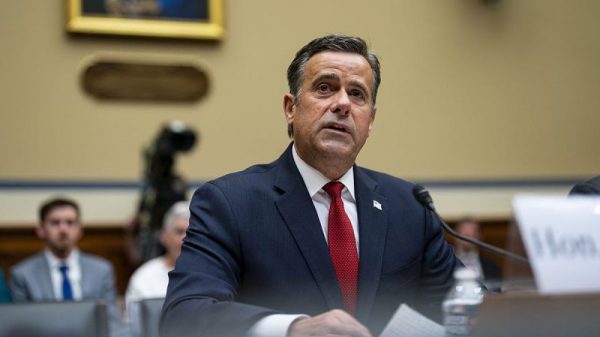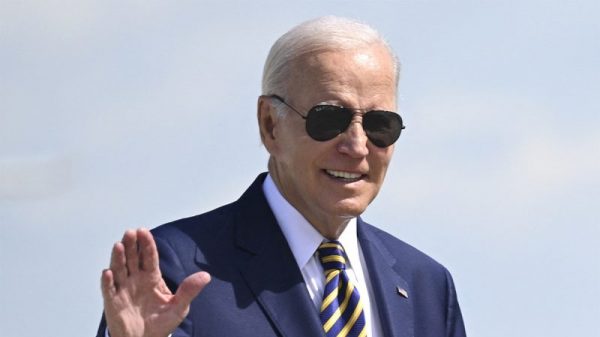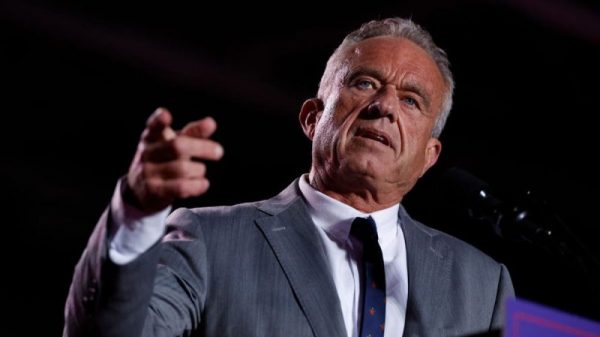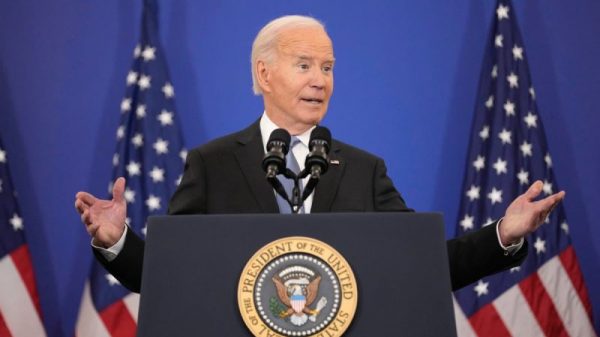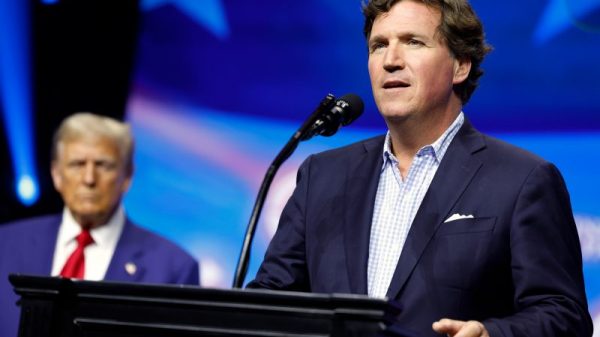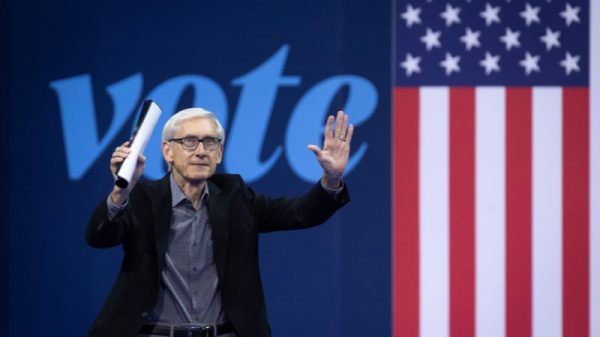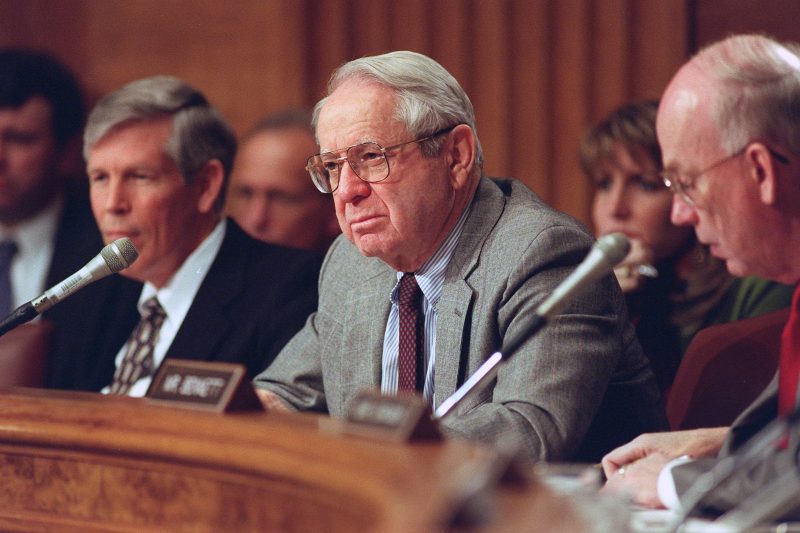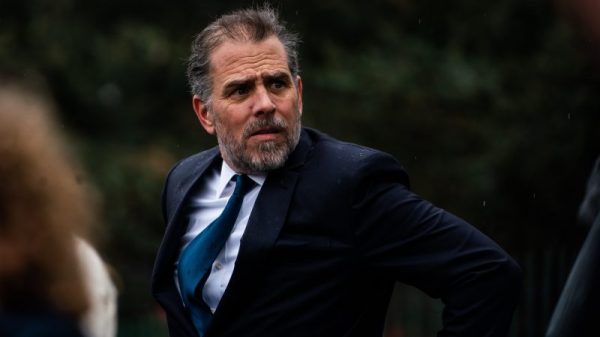Lauch Faircloth, a North Carolina farmer who came to Washington as a tax-cutting Republican but whose single term as senator became defined by battles with D.C. Mayor Marion Barry as lawmakers seized near-total control of city operations amid a financial crisis in the 1990s, died Sept. 14 at his home in Clinton, N.C. He was 95.
Brad Crone, a former aide, confirmed the death but gave no specific cause.
With the District stumbling toward possible bankruptcy in the mid-1990s, Mr. Faircloth became the face of congressional unease as the chairman of the Senate Appropriations subcommittee on the District of Columbia. The news was increasingly dire: The city’s budget shortfalls had swelled to more than $720 million, services were trimmed to bare bones and the tax base was in free fall as middle-class residents bolted for the suburbs.
“My ability to run a city is exactly that of Mayor Barry’s: None at all,” said Mr. Faircloth, whose full name was Duncan McLauchlin Faircloth but, who went by a shortened version of his middle name, Lauch (pronounced lock).
On the other side was Barry, combative and confident, riding a stunning political comeback to regain the mayor’s office in 1994 for a fourth time. Barry’s political future once seemed over after being caught smoking crack cocaine in a 1990 FBI sting and serving six months in federal prison. “I’m in recovery,” he said when he announced his candidacy in 1994, “and so is my city.”
Mr. Faircloth and Barry could not have been more different. While Barry was cutting his political teeth as an activist in the 1960s, Mr. Faircloth was quietly building deep ties among North Carolina’s political leadership. As Barry was struggling in the 1980s as mayor in a city increasingly gripped by crime and a crack epidemic, Mr. Faircloth was building a prosperous network of cotton fields, hog farms and car dealerships.
Mr. Faircloth remained a loyal old-guard Southern Democrat — serving on state commissions and once making a bid for governor — until feeling the pull of the GOP’s rising conservatism and newly crafted “family values” branding. He switched parties in the early 1990s and received a welcoming embrace from North Carolina’s Republican patriarch, Sen. Jesse Helms.
Mr. Faircloth beat his former ally, Sen. Terry Sanford (D), in 1992 with a campaign preaching a doctrine of tax cuts, balanced budgets and tighter rules on welfare programs. It earned him a place on the influential Senate Appropriations Committee — and the top spot on the District subcommittee.
Although Congress always wielded some oversight of District affairs, the D.C. financial meltdown put Mr. Fairchild and Barry on a collision course.
In 1995, President Bill Clinton signed a plan by the GOP-led Congress for a control board that had sweeping authority over D.C.’s purse strings, with the ability to overrule the mayor and other officials.
The board, and its chief financial officer, effectively became the District’s paymasters and bookkeepers. Barry, aggrieved and resentful, unleashed much of his ire on Mr. Faircloth, who helped lead the process that created the control board.
Barry’s supporters, including the Rev. Jesse Jackson, gathered for rallies that made Mr. Faircloth a chief villain for the new controls on D.C. spending. Mr. Faircloth appeared to shrug it off. “I’ve heard so many meaningless statements from Marion Barry that one more doesn’t matter,” he told the New York Times. “It’s airy persiflage.”
Mr. Faircloth opened the vault for some projects, using the subcommittee to get extra money for D.C. schools, law enforcement and repairs to municipal buildings. Meanwhile, even more sweeping watchdog measures were taking shape.
A federal rescue plan for the District was hammered out in 1997 between lawmakers, including Mr. Faircloth’s team, and the Clinton administration. The package transferred control over most of the city’s operations to the control board and restructured some of D.C.’s debt, including shifting a $4.9 billion pension shortfall to the federal government. Barry was left with a few small agencies, such as D.C. tourism and parks.
Barry let loose on Mr. Faircloth. “When he got the opportunity to stick up the District and begin to rape democracy, he did so,” Barry told reporters. “Sen. Faircloth started the rape.”
Ironically, it was Barry who first called for the federal government to take control of numerous District programs in February 1995, saying the city’s home-rule system — enacted in 1973 — was broken and in need of a bailout. What Barry opposed was any curbs to his own powers.
Mr. Faircloth lost his reelection bid in 1998 to Democrat John Edwards, a North Carolina trial lawyer who became the running mate of presidential candidate Sen. John F. Kerry (D-Mass.) in an unsuccessful campaign for the White House in 2004.
As the returns came in from North Carolina in 1998, Barry gleefully predicted Mr. Faircloth was heading back to his hog farms. “He’s so busy picking on me and the residents of the District of Columbia that he neglected his constituents in North Carolina. Now he can go back and deal with the pigs,” said Barry. “Goodbye, Faircloth.”
Barry did not seek a fifth term as mayor and left office in early 1999. He died in 2014. The control board, and its day-to-day oversight of D.C. finances, ended in 2001.
When Barry announced he was not running again, Mr. Faircloth got in his parting shot.
”He was a terrible mayor,” Mr. Faircloth told The Washington Post. “He did not have the ability to run the city, and Congress lost faith in him. To restore the capital to what 280 million Americans expect it to be, it was time for a change.”
In a 1998 look back on the duels between Mr. Faircloth and Barry, Washington Post reporter Michael Powell gave Mr. Faircloth the winning edge.
The mayor “had spent two years driving the control board batty, pledging cooperation even as he strived to subvert it,” Powell wrote. “It was in-house guerrilla warfare, and Faircloth crushed it like a bug.”
Duncan McLauchlin Faircloth was born in Sampson County, N.C., on Jan. 14, 1928, and was the youngest of four sons. His family owned a 2,500-acre cotton farm in the southeastern part of the state.
Mr. Faircloth dropped out of High Point College (now High Point University) in North Carolina during his freshman year after his father had a stroke. He took over the family farm when his father died and gradually expanded the business to include hog farming. He also became involved in ventures, such as car franchises and construction.
He was drafted for U.S. Army service in 1954 but received a hardship discharge because of his responsibilities at home. He began making influential political allies while serving as an aide and adviser to U.S. Sen. W. Kerr Scott (D-N.C.) Mr. Faircloth backed Sanford’s successful run for governor in 1960 and served on North Carolina’s highway commission.
In 1977, he was appointed as the state’s secretary of commerce under Gov. James B. Hunt (D), and stayed in the position until 1983. Mr. Faircloth then made a gubernatorial bid of his own but failed to get the Democratic Party nomination for the 1984 election.
During an August 1983 campaign swing in western North Carolina, a twin-engine Cessna 414 used for the trip skidded off a rain-slicked grass runway and crashed into the headwaters of a lake. Mr. Faircloth, his aide Crone and two others managed to get out of the plane as it filled with smoke.
“The water saved us,” Mr. Faircloth recounted to The Post. “The plane was on fire from one end to the other and the water extinguished the fire. … Before we were 50 feet away, the plane went back into flame and was burned to a crisp.”
In the Senate, Mr. Faircloth boosted federal funds for North Carolina agriculture and business and adopted a strong right-leaning on social issues in votes against expanding reproductive care and gay rights. He led calls to establish work requirements as a condition for welfare.
Both his marriages, to Lady Tarlton and Nancy Bryan, ended in divorce. Survivors include a daughter from his second marriage and two grandchildren.

